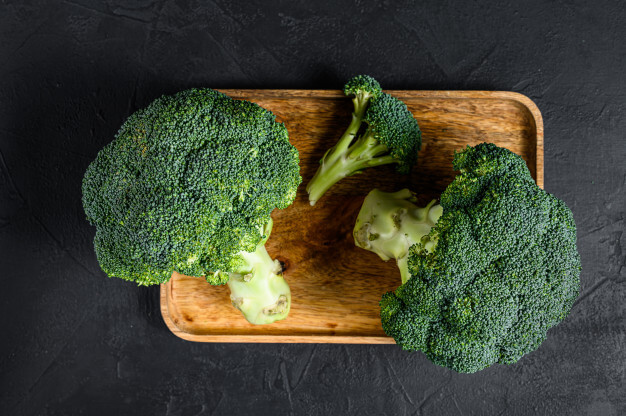Good news ladies, pregnant women need to eat an extra 350 to 500 calories each day. Finally, a valid excuse to eat more!
With that statistic in mind, we thought it would be a good idea to reveal to you the best foods to eat in early pregnancy. That way, you’ll be able to use this surplus of calories to both you and your babies advantage.
So, without further ado, let’s dive in!
1. Beans and Lentils :
If you’re looking to nurture your 14 weeks pregnant belly, we recommend eating plenty of beans and lentils.
These foods are a fabulous source and protein, and pregnant women need an extra 10 grams of protein each day.
Therefore, beans and lentils make an excellent addition to your diet because they contain as much as 15 grams of protein per cup!
If you’re unsure how to use them, we suggest adding cooked lentils and beans to your salads and rice dishes. These are sure to be a tasty addition!
2. Broccoli :
Now, broccoli isn’t always everyone’s favorite food. However, it’s worth bearing with because it’s packed full of nutrients such as calcium and folate.
In addition to this, it’s high in fiber and vitamin C which is essential for helping your body absorb iron. Therefore, the best time to eat broccoli is when you accompany it with iron-rich food like lean red meat or wholegrain pasta.
Plus, broccoli is rich in antioxidants, which promote healthy digestion and strengthen your immune system (which is obviously even more critical when you’re pregnant).
Also, if you’re struggling with constipation (which is exceptionally common among pregnant women), broccoli is a must because of its high fiber content.
Really and truly, broccoli is the perfect pregnancy food!
3. Bananas :
Bananas are a brilliant snack for pregnant women.
Not only does the potassium help combat fatigue, but they’re also kind on the stomach if you’re suffering from morning sickness.
4. Lean Meat :
Just like protein levels, pregnant women also need to increase their iron intake. The volume of their blood increases, which causes them to need double the amount of iron.
Therefore we suggest eating plenty of lean meat as this provides a form of iron that’s quickly absorbed by the body. Good examples of these include:
- Beef
- Pork
- Chicken
In addition to iron, these meats typically contain choline and vitamin B, both of which pregnant women need more of.
5. Oatmeal :
There’s no better to start your day than by eating a bowl of nutritious cereal. The complex carbohydrates in oatmeal will leave you feeling fuller for longer, and this breakfast will help lower your cholesterol levels–win-win!
Top Tip: Don’t buy processed oatmeals that are full of sugars and additives. Instead, cook yourself the plain variety and add a dollop of jelly. Yummy!
6. Leafy Greens :
When you cook the following greens:
- Spinach
- Kale
- Turnip greens
You release higher levels of iron and folate. In addition to this, they’re also a fabulous source of calcium, vitamin C, vitamin K, vitamin A, and potassium.
We suggest sprinkling a few of these leafy greens in your pasta dishes, adding them to soups, or substituting iceberg lettuce for them in your salads.
7. Whole-Grain Bread :
The simple swap from white to whole grain can make a massive difference when you’re pregnant. By doing this, you ensure you get your daily intake of fiber.
Ideally, you want to ensure that each slice contains at least two grams of fiber before you commit to purchasing the loaf.
Plus, wholemeal bread also provides you with both iron and zinc, which are both essential nutrients for pregnant women!
8. Oranges :

Oranges are an excellent fruit to eat while you’re pregnant. They’re full of the following goodies:
- Vitamin C
- Folate
- Fiber
- Water
Now the water might not sound like a massive deal, but these fruits are almost 90% liquid, which is excellent for keeping you hydrated and combatting fatigue.
9. Nuts and Nut Butters :
Healthy fats are critical for your baby’s brain development, so we suggest eating one ounce of nuts a day and two tablespoons of nut butter. Plus, these snacks will help keep you full!
Top Tip: if you suffer from any kind of allergy, we suggest steering clear of highly allergenic foods such as nuts while you’re pregnant.
Some scientists believe that exposing the baby to foods like this during pregnancy could increase their risk of developing a more severe allergy during childhood.
10. Sweet Potatoes :

Sweet potatoes are full of a nutrient called beta-carotene. When we digest it, we transform it into vitamin A. This is fabulous for mothers to be because Vitamin A helps the fetus’ cells grow and differentiate from one another.
Top Tip: pregnant women are usually advised to stay away from high levels of animal-based vitamin A because these can sometimes be dangerous when eaten to excess.
This is another reason why foods that contain beta-carotene are essential to include in your pregnancy diet.
Best Foods to Eat in Early Pregnancy: Final Thoughts
It’s important for women to swot up on the best foods to eat in early pregnancy because your dietary requirements change a little. However, by sticking to diets high in protein, iron, and fiber, you shouldn’t go too far wrong!
If you enjoyed this article, we’re confident you’ll love the other features published on our family and parenting blog. Over there we discuss everything from pregnancy care tips to family leave.
Enjoy!
Alternatively, if you have any questions about this subject, please feel free to drop us a line. We love to hear from our readers! Just fill out the simple contact form, and we’ll get back to you as soon as we can. Speak soon!
Read Also :



























